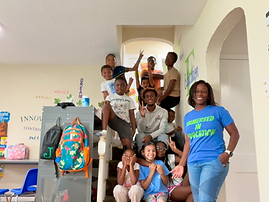- Immersed In Education

- Oct 2, 2022
- 2 min read
Early signs of difficulty should not be attributed to immaturity. When a kindergarten child confuses letters, associates the wrong sound with a letter, or cannot distinguish a rhyme, it usually has nothing to do with social maturity. These warning signs do not necessarily mean the child has a reading disability; these signs may indicate the child had insufficient preschool preparation. If a child has not been exposed to letters and letter sounds, she usually catches on quickly once exposed. Immersed in Educatio provides an early learner PreK program from 9am-1:30pm Monday- Friday. It is only after effective instruction has been provided and the child is still struggling that one can conclude there may be a more serious problem.
Why do parents wait to seek help?
In a recent Roper Starch poll, parents' attitudes about their child's learning problems and the public's general awareness of learning disabilities were explored. The poll showed many parents waited far too long to seek help for their child because they worried their child might be stigmatized if found to have a learning problem. Nearly half (48 percent) of parents felt having their child labeled as "learning disabled" was more harmful than struggling privately with an unidentified problem. Of the parents who expressed some concerns their child may be having trouble, 44 percent said that they waited a year or more before seeking help.
Parents who understand the risks of delay in getting help for their child's reading problems are motivated not to wait. Children can be brought up to grade level much more successfully and with less effort if effective intervention is offered early on. Once parents understand the risks of waiting, hopefully it will be easier to overcome concerns and get help immediately. We at Immersed in Education are certified in orton Gillingham which assist with dyslexia. Sign up for one on one tutoring at www.immersedonline.org.







